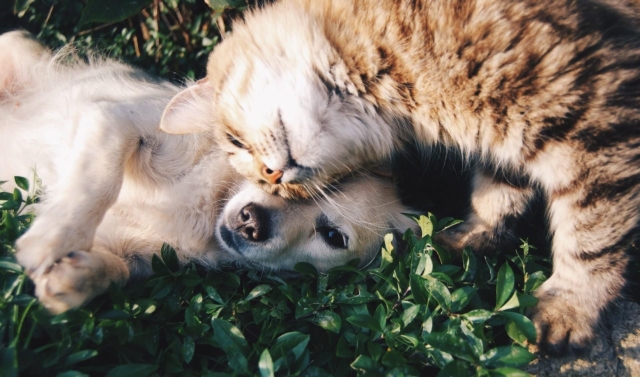
The question of whether cats are smarter than dogs has sparked a long-standing debate among pet owners and animal enthusiasts. While some argue that cats are more intelligent due to their independent nature and problem-solving abilities, others believe that dogs possess superior cognitive skills and are more trainable. In this article, we delve into the world of animal intelligence to uncover the truth behind this age-old debate.
Understanding animal intelligence
Animal intelligence is a complex and multifaceted concept that encompasses various cognitive abilities and problem-solving skills. It is often measured through tasks involving memory, learning, reasoning, and social interactions. However, comparing the intelligence of different species, such as cats and dogs, can be challenging due to their distinct evolutionary backgrounds and unique behavioral characteristics.
The intelligence of cats
Cats have long been regarded as independent and self-reliant creatures. Their ability to navigate complex environments, hunt effectively, and solve problems has led many to believe that they possess a high level of intelligence. Cats have excellent memory retention and can remember their way home even after being taken to unfamiliar locations. They also display impressive problem-solving skills when presented with puzzles or obstacles, often finding creative ways to overcome them.
Moreover, cats exhibit a remarkable ability to adapt to new situations and learn from their experiences. They are quick learners when it comes to hunting techniques and can adjust their strategies based on the prey they encounter. Additionally, cats have a keen sense of observation and can read human cues effectively, enabling them to develop a deep understanding of their owners’ emotions and needs.
The intelligence of dogs
Dogs, on the other hand, are known for their social nature and strong bond with humans. They have been domesticated for thousands of years and have evolved to be highly attuned to human emotions and commands. Dogs are exceptional learners and can be trained to perform a wide range of tasks, from basic obedience commands to complex tricks and tasks.
One of the key factors contributing to the perceived intelligence of dogs is their ability to understand human gestures and vocal cues. They can recognize and respond to a variety of commands, making them valuable companions in various roles, such as therapy dogs, service animals, and search and rescue dogs. Dogs also possess excellent memory skills and can remember associations between words and actions, allowing them to respond to verbal cues accurately.
Comparing cat and dog intelligence
When comparing the intelligence of cats and dogs, it is essential to understand that intelligence can manifest in different ways. While cats excel in problem-solving and adapting to their environment, dogs shine in their ability to understand and communicate with humans. Both species have unique cognitive skills that have been shaped by their evolutionary history and their interactions with humans.
It is also important to note that individual variations exist within each species. Some cats may display exceptional intelligence and exhibit behaviors that go beyond the typical feline capabilities, just as some dogs may exhibit higher cognitive abilities compared to their counterparts. Therefore, it is challenging to make a definitive judgment on which species is inherently smarter.
Factors that influence intelligence in cats and dogs
Several factors can influence the intelligence of cats and dogs. Genetics play a significant role in determining the cognitive capabilities of these animals. Breeds with a long history of selective breeding for specific traits, such as border collies and German shepherds, are often considered to be highly intelligent. However, this does not mean that other breeds or mixed-breed animals are less intelligent. Each individual cat or dog possesses its unique set of cognitive abilities and problem-solving skills.
Environmental factors also play a crucial role in shaping the intelligence of cats and dogs. Providing a stimulating and enriching environment with opportunities for mental stimulation and social interaction can enhance their cognitive development. Regular training sessions, interactive toys, and socialization with humans and other animals can contribute to the overall intelligence and well-being of these pets.
Studies and research on cat and dog intelligence
Over the years, several studies and research have been conducted to explore the intelligence of cats and dogs. These studies often involve various cognitive tasks, such as memory tests, problem-solving puzzles, and social interaction experiments. While the results of these studies provide valuable insights into the cognitive abilities of cats and dogs, they should be interpreted with caution, as there can be variations in individual animals and breeds.
One study conducted at Kyoto University in Japan aimed to compare the problem-solving abilities of cats and dogs. The researchers presented the animals with a puzzle box containing food and observed their responses. The study found that while dogs were more likely to seek help from humans when faced with a challenging task, cats relied more on their own problem-solving skills and persistence to obtain the reward.
Real-life examples of cat and dog intelligence
Numerous real-life examples showcase the intelligence of both cats and dogs. Dogs have been trained to detect cancer, diabetes, and seizures in humans, saving countless lives. They have also proven their intelligence in search and rescue missions, locating missing individuals in challenging terrains. Cats, on the other hand, have displayed remarkable problem-solving abilities, such as opening doors and cabinets to access food or escaping from confined spaces.
These examples demonstrate that both cats and dogs possess unique cognitive abilities that allow them to adapt to various situations and contribute to the well-being of humans.
Debunking myths about cat and dog intelligence
There are several myths surrounding the intelligence of cats and dogs that need to be debunked. One common myth is that cats are aloof and untrainable. While cats may have a more independent nature compared to dogs, they are highly trainable and can learn a variety of tricks and commands through positive reinforcement techniques. Similarly, the myth that dogs are more intelligent simply because they can be trained more easily is untrue. The cognitive abilities of cats and dogs should not be judged solely based on their trainability.
The verdict on cat vs. dog intelligence
In conclusion, the question of whether cats are smarter than dogs or vice versa does not have a straightforward answer. Both cats and dogs possess unique cognitive abilities that have been shaped by their evolutionary history and their interactions with humans. Cats excel in problem-solving and adapting to their environment, while dogs are highly attuned to human emotions and commands. Individual variations within each species further complicate the comparison. Ultimately, intelligence should not be the sole factor when deciding between a cat and a dog as a pet. The choice should be based on an individual’s lifestyle, preferences, and the unique qualities that each species brings to the table.
Explore the fascinating world of animal intelligence and discover the perfect companion for you. Whether you choose a cat or a dog, remember that both species have their unique qualities and can bring immense joy and companionship into your life.
If you enjoyed my article, I would appreciate you sharing it with your network.

Sima Ndlebe
Sima writes for CatBuzz. He is interested in Cats, Health and Fitness, and Entrepreneurship.
Published: 31 October 2023



